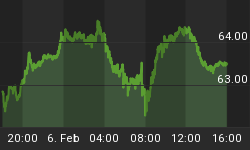Last week on Fox Toledo we discussed the potential impacts of the natural disasters in Japan on the global economy and financial markets.
At that time much of the damage from the earthquake, along with the ensuing tsunami and after-shocks, was still being assessed. Based on what we were seeing from early reports we explained that the economic impact felt here in the United States should actually be relatively muted; that the greatest impact would be felt by those holding investments in companies that have been directly affected.
Obviously this does not include the myriad of Japanese who have, sadly, lost their homes, their businesses, or even their lives.
We started off by explaining that events like those in Japan "don't shape markets, they shock markets." However, we also realized that the situation in Japan was and is still very fluid, and that consequences could be very different if problems like those we are seeing with the Fukushima reactors continue.
For the most part, what we said then still holds true: we still expect the impact of these events on the global economy and the world's financial markets to be fairly low. Outside of Japan, we expect that those who will be hurt the most by these events will be those with investments in Japanese companies.
All-in-all, we believe that the vast majority of the decline in the worlds' capital markets has been due to fear, not economics. As we said on Fox Toledo, these events have caused many investors to re-assess some of the risks in their portfolios. Unfortunately, the fear resulting from the events of last week have caused the US stock markets to give back almost all of their gains for 2011.
As reports continue to come out of the region, it becomes increasingly clear that Japan's domestic economy has suffered tremendous blows as a result of the natural disasters there. These problems will only get worse if the reactor problems continue to worsen, as the time required to rebuild would only be extended.
However, even if the reactor problems do spread, we still expect the effects on the global economy to remain minimal. The only exception would be if Japan's manufacturing capacity is affected, though it has remained mostly untouched so far.
The little impact that has been seen so far on Japan's manufacturing industry has been due to limited electricity. While the earthquake(s) and tsunami don't appear to have hit Japan's manufacturing center directly, they have damaged both (a) the infrastructure used to get products into and out of the country, and (b) the production of electricity used to manufacture goods.
Though the disasters in Japan didn't strike industrial plants, they did strike in areas that seemed to have high concentrations of electricity-producing facilities. Already we're hearing stories of rationing electricity, as well as goods like food, oil, et cetera. This, in turn, is hurting manufacturing.
There's another aspect to these events that we didn't get the chance to cover last week, and that is how they further support what we've been saying for sometime: Manufacturing will return to America.
In our discussion with the local Fox affiliate, we did point out that events like those in Japan remind the public of the risks involved in investing internationally. Additionally, they also remind businessmen of the dangers of putting down roots in higher-risk areas.
After all, there's a reason that you don't hear about many businesses setting up shop in Colombia, Venezuela, or the Middle East; all areas with significant exposure to political turmoil.
The stories coming out of Japan should also serve to remind business leadership to consider geographic risks, not only as they relate to shipping costs but also the potential for natural disasters. Apart from the potential damage caused by disasters themselves, we are also being reminded of the threat of commercial downtime caused by any ensuing fallout, plus the time required for clean-up before business can return to normal.
It goes without saying that our thoughts and prayers go out to those in Japan who have been so terribly impacted by the events of last week. We can only hope that the problems there do not continue to compound, and that people around the world can learn valuable lessons from this tragedy.















